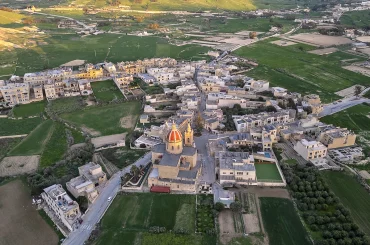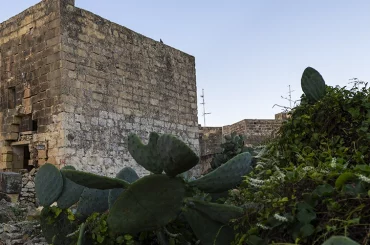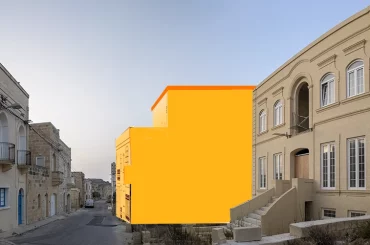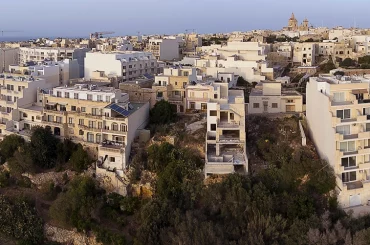Around two months ago I got my twice-yearly food box: a carton box, packed with tinned and packaged foodstuffs, given to the poor by social services and funded by the EU.
I qualify for food aid because in 2021 my entire net income amounted to less than €9,000 – almost a thousand euros less than the minimum wage. Last year (2022), my net income slid even further due to the technical and subscription cost of running this website, currently amounting to €200 per month, as well as much spent on equipment to enable me to continue producing – and improving – high calibre journalism.
Low income is the price I pay for creative and editorial independence. I started this website a year ago after spending several years being published by other media outlets in Malta – and being paid so little that I was indirectly subsidizing such outlets. In the two years before I started this website, the fee I was being paid by these media outlets fell to between €30 and €40 per article.
All my articles are well-researched – some of my journalistic investigations take weeks of work – and if you do the maths, it gives you an idea of how those media outlets treated me (or shall we say exploited me) and treated my work.

I could have gotten a salaried full-time job with such media outlets – one offered me a deal, another offered employment several times – but that would have meant having to conform to their output dynamics: reportage that is shallowly researched, and that in some cases relies on unnamed single sources (without much effort at verification). It would also have meant having to acquiesce to editorial direction that would prefer sensationalist over serious articles, and nudge some stories towards a partisan angle.
I do not need to do journalism. Over the past 30 years, my output in the publishing industry has been varied, and I have lived and worked in different parts of the world. For many years I wrote about travel in Asia, and that is when I did well, financially-speaking.
But since I got into journalism in Malta over the past few years, then I have adopted this bottom line: the day I would have to produce shallowly reported articles would be the day I would quit journalism in Malta.
The dynamic of the media in Malta – and I am talking about the so-called independent media – is that there is little value in proper, investigative or well-researched journalism. (Of course media outlets do occasional investigations, or spots of investigations – I am really talking here about consistent, regular work that is thoroughly researched or investigated.)
To be sure, detailed, investigative journalism the world over is not journalism that generates mass appeal – even international investigative websites, such as Bellingcat and OCCRP, get a fraction of visitors that international news sites get.
Mind you, the more popular investigative stories on this website get a number of visitors that matches other news websites in Malta. But I am taking an overall view, and in that view, Malta's small size means that the appeal of indepth investigative journalism is even more limited than investigative journalism internationally or in larger markets. In some cases I am going for joint publication with international media partners to widen the reach. I have done this successfully several months ago with a large-scale investigation into the tuna fattening industry.
But the reality remains that if you seek to lure advertisers with volume of website visits consistently, then you are not going to achieve that with investigative articles or analyses weighted by detailed research.
The situation in Malta is particularly dire even when taking into account the limitations of small market: much is published that is riddled with factual errors and spotty logic, and that’s due to skimpy research and unreasonable pressure on journalists for hasty output.
Audience interest also plays a part in this dynamic. The overwhelming majority of readers in Malta tend to be most strongly drawn to sensationalist, partisan articles or political polemics. Moreover, most people nowadays consume online news on a smartphone, and longish in-depth pieces can be tedious on a smartphone, so the delivery has to be right – and getting the delivery right, including visuals, takes much time, effort, and resources.
The impact of investigative journalism is not in its mass appeal, it’s in the findings: these are picked up by NGOs and officials, and at times take the matter further into investigations or other actions.

Other type of material I publish on this website – analyses, including legal analysis that tend to be technical – serves as reference material, and hence it has a reach that is small yet steady and durable. (Whenever I tried to publish these articles in other media outlets, they used to see the value of these pieces, but then shirk away anyway because of the narrow appeal of legal analyses.)
Such journalism works by slow yet steady amplification: it reaches the kind of audience who can do something with it or about it, and the effect or impact is amplified in this manner.
So last year, instead of quitting journalism in Malta (which would have been the easiest thing to do), I decided to launch this website to continue doing work that others found inconvenient or were not willing to pay enough to enable me to put food on the table.
A website with this type of mission largely relies on donations. It is still gearing up – I will be launching major new sections in the next several weeks – so I am not too concerned about whether the amount I got from donations last year is sufficient to sustain this project yet. After 5 years indirectly subsidizing other media outlets, I can live with another year of subsidizing this endeavour.
More importantly, I need more money to develop this project. I already spend €200 monthly on running costs, and I need to spend significantly more to make the delivery more sophisticated and effective. More money would also allow me to outsource some work, and do more investigations. (And – on a personal level – it would be good to save some money, rather than having to constantly make creative choices to try to balance income and outlays.)
So, if you have any spare change left after the festive season, then consider donating as little as €5 to sustain this project.
You can see how the donation system works – it is uniquely transparent – and chose your mode of donation by visiting this page. Or you can click on the button in the box below and donate directly on the investigative journalism donation channel.
No spare change leftover after the festive season? Then subscribe by filling the form below. Subscribing is useful for this project because I do not publish every day, or even on set days in a week, and well-timed newsletters (I keep mailings limited) allow you to stay in the loop and allow me to reach the audience more effectively.
Donate to Investigative Journalism
Robustly researched, professionally delivered, and sustained journalistic investigations published on this website make a difference – and take much time, effort, and resources to produce. Victor Paul Borg relies on donations for income and to fund journalistic investigations. This website's donation setup itself is uniquely transparent, with targeted amounts that allow tracking of donations in real time on the page. Contribute as little as €5 to sustain active journalism that makes an impact.




